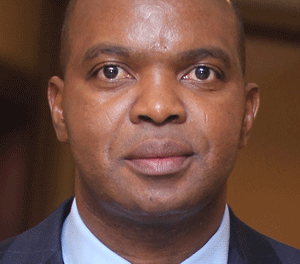
China-Africa cooperation scales new heights
Since the formation of the China Africa Forum 15 years ago, relations between the two sides have continued to scale new heights in the areas of economic, cultural, political and security spheres.
The 2015 Johannesburg Summit of the Forum on China Africa Cooperation has taken further bold steps to cement mutual benefit between the two sides while taking the ties to even higher levels, including a new US$60 billion Chinese fund to support development on the African continent.
The Forum on China Africa Cooperation (FOCAC) enunciated in 2000 has provided a more structured platform for deepening the ties between the two sides in a broad spectrum of fields from political to economic areas.
Latest figures indicate that trade between the two sides reached US$220 billion in 2014 while China’s direct investment in Africa topped US$30 billion in the same year.
In an address to the opening ceremony of the Johannesburg Summit of FOCAC on 4 December, Chinese President Xi Jinping announced 10 China Africa Cooperation Projects which will be supported by a US$60 billion fund.
The plan covers development in a wide range of sectors of the African continent, including improvement of the continent’s industrial capacity, agricultural modernisation, infrastructure development, upgrading rural and urban settlements, green development, trade and investment facilitation, poverty reduction, health improvement, culture and people to people exchange, and peace and security cooperation.
Outlining his country’s vision for Africa, Xi said the fund, which consists of grants, favourable concessionary loans and other investment funds, will be channelled into areas selected by African countries as opposed to priorities imposed by others.
He said China’s foreign policy on Africa was guided by five principles that include political equality and mutual trust, win-win economic cooperation, mutually enriching cultural and people to people exchanges, mutual assistance in peace and security, and solidarity and cooperation in international affairs.
Zimbabwe President Robert Mugabe, who is the African Union chair, led African leaders in thanking the Chinese President for his generous assistance to the continent.
“Here is a man representing a country once called poor; a country that never colonised us, doing what those who once colonised us ought to be doing,” he said, calling on the continent’s erstwhile colonial powers to take notice.
The fact of China not moving into Africa for the continent’s resources has been allayed by Chinese authorities on many occasions. Xi in particular has consistently spoken of the “new normal” where the world is undergoing profound changes.
Part of that “new normal” has no doubt manifested itself in the maturation of the Chinese economy, which is now seeking to shift from one that is resource hungry to a new economic system that is consumer-driven with a strong middle class.
It is an economy that is seeking to export some of its labour-intensive industries into Africa, for example building industrial parks that will take advantage of the continent’s demographic dividend.
Dr. Nkosazana Dlamini-Zuma, who is AU Commission chairperson, said Africa is set to benefit from investment by Chinese enterprises as the continent “has a young population in an ageing world”.
This is the 6th FOCAC at ministerial level since 2000 and only the second summit. The Johannesburg Summit was attended by 50 African countries.










































